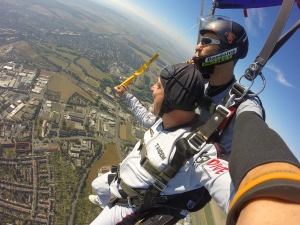Sports, the timeless arena where passion meets competition, has woven itself into the fabric of human society since time immemorial. From the jubilant cheers of spectators in ancient coliseums to the modern-day stadiums packed with fervent fans, the essence of sports remains a universal language that transcends borders, cultures, and generations. In this expansive exploration, we embark on a journey through the dynamic evolution of sports, examining its profound impact on individuals, communities, and the world at large.
The Human Spirit in Motion: Origins and Early Development The genesis of sports can be traced back to the earliest civilizations, where physical prowess and athleticism were celebrated as manifestations of the human spirit. In ancient Greece, the Olympic Games emerged as a symbol of honor and excellence, bringing together athletes from disparate city-states in a spirit of friendly competition and camaraderie. Similarly, in Mesoamerica, the ballgame known as ullamaliztli held both religious and recreational significance, serving as a test of skill and endurance for its participants. These early forms of sports laid the groundwork for the diverse array of athletic pursuits that would follow in the centuries to come about more elanduturf
A Renaissance of Athleticism: From Tradition to Innovation The Renaissance period witnessed a revival of interest in classical ideals, including the pursuit of physical fitness and sporting excellence. Across Europe, the nobility engaged in lavish tournaments and jousting competitions, showcasing their martial prowess in elaborate displays of chivalry and honor. Meanwhile, in the New World, indigenous cultures continued their own sporting traditions, with games like lacrosse and shinny serving as expressions of communal identity and spiritual connection. As the age of exploration unfolded, sports evolved alongside the changing currents of society, embracing new technologies, and cultural influences while preserving age-old traditions and values.
The Modern Era: Professionalism, Globalization, and Mass Appeal The dawn of the modern era marked a watershed moment in the history of sports, as organized competitions and professional leagues began to take shape across the globe. From the birth of modern football clubs in England to the establishment of Major League Baseball in the United States, sports became increasingly professionalized, attracting larger audiences and commercial interest. The 20th century witnessed the rise of iconic sporting events such as the FIFA World Cup and the Olympic Games, which captivated audiences worldwide and solidified sports as a global phenomenon. With the advent of radio and television, sports reached unprecedented levels of mass appeal, cementing its status as a cultural touchstone and driving force for social change.
Innovation and Adaptation: Embracing the Digital Age As we enter the digital age, sports continue to evolve in response to technological advancements and shifting consumer preferences. The proliferation of digital media platforms and streaming services has revolutionized the way fans engage with their favorite sports, providing on-demand access to live events, highlights, and exclusive content. Meanwhile, advancements in sports science and analytics have transformed training methods and player performance, pushing the boundaries of human potential and reshaping the competitive landscape. From virtual reality experiences to immersive fan engagement initiatives, the convergence of sports and technology has opened new frontiers for innovation and creativity, promising to redefine the future of sports entertainment.
Conclusion: In conclusion, the evolution of sports stands as a testament to the enduring power of human ingenuity, passion, and resilience. From its humble origins in ancient rituals to its modern incarnation as a global phenomenon, sports have captivated the hearts and minds of people around the world, serving as a source of inspiration, unity, and collective joy. As we look to the future, one thing remains certain: the spirit of sportsmanship and the pursuit of excellence will continue to shape our shared experiences, transcending boundaries and connecting us in ways that defy time and space.
The Renaissance of Athletics: From Chariot Races to Gladiatorial Combat
During the classical era of Greece and Rome, sports flourished as integral components of social, cultural, and political life. The Olympic Games, held in Olympia every four years beginning in 776 BCE, showcased the physical prowess of athletes from across the Greek world and fostered a spirit of unity among competing city-states. Meanwhile, in Rome, gladiatorial combat emerged as a popular form of entertainment, blending athleticism with spectacle in the blood-soaked arenas of the Colosseum. These ancient sporting traditions not only provided a platform for individual achievement but also served as reflections of broader societal values and ideals.
The Modern Era: From Amateur Pastimes to Global Phenomena
The industrial revolution of the 19th century paved the way for the modernization and commercialization of sports, transforming them from amateur pastimes into organized, professional endeavors. The establishment of governing bodies, such as the English Football Association in 1863, and the codification of rules and regulations standardized gameplay and laid the foundation for the rise of modern sports leagues and competitions. Meanwhile, the advent of mass media, including newspapers, radio, and later television, enabled sports to reach wider audiences than ever before, turning athletes into household names and sporting events into cultural phenomena.
Globalization and Innovation: The Dawn of the Digital Age
In the 21st century, sports have transcended geographical and cultural boundaries, becoming truly global phenomena fueled by advances in technology and the proliferation of digital media. The rise of social networking platforms, streaming services, livepositively and mobile applications has revolutionized the way fans engage with their favorite sports, providing instant access to live events, highlights, and behind-the-scenes content. Meanwhile, innovations in sports science, such as wearable technology, data analytics, and biomechanical analysis, have enabled athletes to push the limits of human performance and achieve feats once thought impossible.
The Future of Sports: Navigating Challenges and Embracing Opportunities
As we look ahead to the future, the landscape of sports is poised for further transformation, driven by emerging trends and evolving societal demands. From the rise of e-sports and virtual reality to the growing emphasis on sustainability and inclusivity, the next frontier of sports promises to be as exciting and unpredictable as ever. However, amidst the opportunities lie challenges, including concerns about athlete welfare, doping, and the commercialization of sports, which must be addressed to ensure the continued integrity and relevance of sporting competitions.






